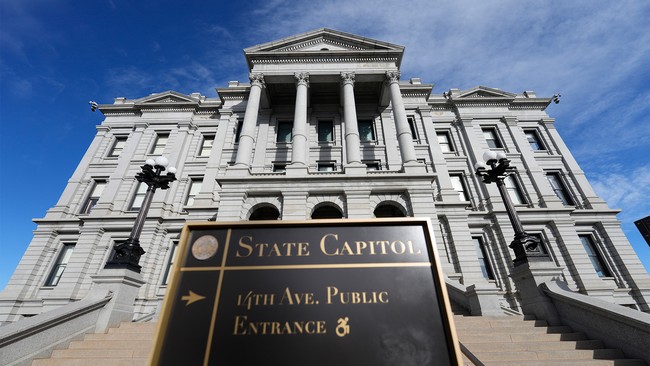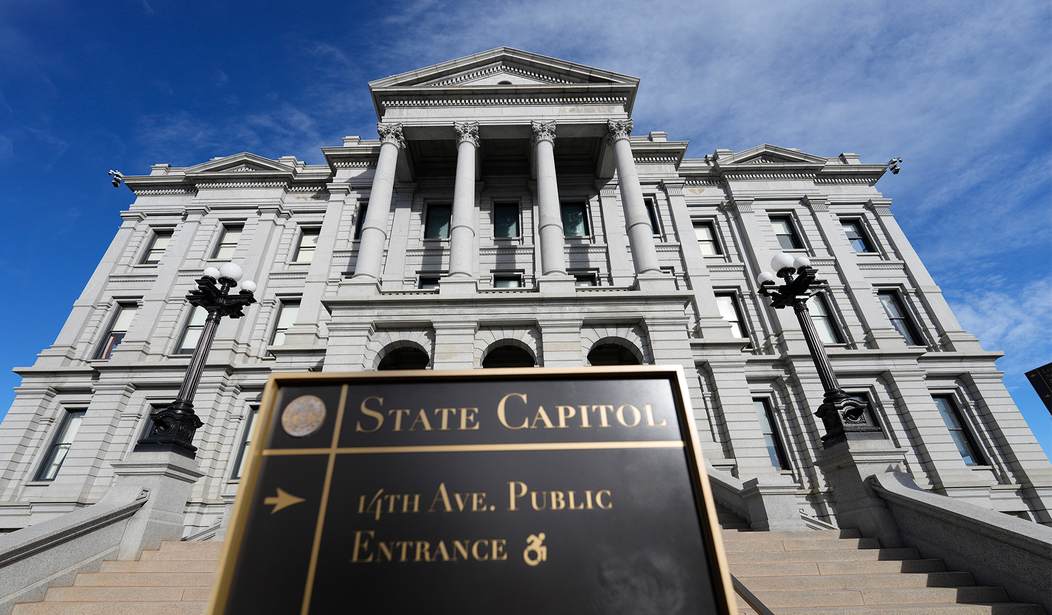The left wants to soak the rich by imposing high-income tax rates on upper-income families. Some even advocate the punitive income tax rates that were in effect after World War Two. Of course, upper-income families found ways to avoid such high-income tax rates through loopholes and deductions. But high income tax rates imposed on high income families have perverse effects that the left chooses to ignore. This is clear in the experience of Colorado with graduated income tax rates.
When President Reagan enacted federal income tax reform in the 1980s, this had a significant impact on Colorado’s income tax. Those reforms lowered federal income tax rates and broadened the base by eliminating loopholes and exemptions. Colorado experienced a windfall because the Colorado income tax was tied to the federal income tax base; broadening the base automatically increased Colorado’s income tax revenues. Colorado legislators asked the obvious question: Why should Colorado citizens pay higher income taxes simply because of federal income tax reform? At that time, Colorado had a graduated income tax with a top rate of 10%, one of the highest top income tax rates in the country. Colorado legislators replaced that graduated income tax with a flat rate tax set at 5%. The broadening in the tax base offset the reduction in the tax rate. Even with that flat rate tax, Colorado experienced some windfall from federal tax reform and subsequently reduced the flat rate below 5%.
The flat rate income tax set the stage for rapid economic growth in Colorado. It is not surprising that the most rapid growth in income occurred in higher-income families. The reduction in their income tax rate stimulated increased savings, investment, and productive activity. Also, high-income families were less able to take advantage of tax loopholes and exemptions. Because the high-income families earned significantly higher incomes, they paid higher income taxes. What is surprising to many is that the higher-income families paid a greater share of total income taxes in Colorado after the adoption of the flat-rate income tax. It is counterintuitive, but a flat rate income tax with low rates and a broad base may be more progressive than a graduated income tax with a high tax rate and a narrow tax base. Those who advocate a soak-the-rich strategy will likely reject this argument, but the facts speak for themselves.
The left is at it again in Colorado with a new ballot measure to increase state income taxes. This year, they will place on the ballot a measure to replace Colorado’s flat rate income tax with a graduated income tax with a top rate of 9.5%. Colorado’s flat rate income tax is protected by the Constitution; the Taxpayer Bill of Rights Amendment (TABOR) requires citizen approval for any new tax or increase in tax rates. Since TABOR was enacted in 1992, the left has placed a number of measures on the ballot calling for increased income tax rates and/or replacement of the flat rate income tax with a graduated income tax.
Citizens in Colorado have rejected all of these ballot measures and are likely to reject the most recent ballot measure proposing a graduated income tax. A graduated income tax with a top rate of 9.5% would leave Colorado with one of the highest income tax rates in the nation. Citizens can observe the impact of high-income tax rates in states such as California. Citizens and businesses are leaving these high-income tax rates for low-income tax states such as Colorado and states with no income tax, such as Texas. Since Colorado adopted a flat rate income tax, it has experienced one of the highest rates of economic growth in the country, while high-income tax states such as California have experienced retardation in economic growth.
The two pillars of prosperity in Colorado are the TABOR Amendment and the flat rate income tax. Constitutional fiscal rules protect Colorado citizens from unconstrained growth in government at all levels. Over the past two decades, Colorado has shifted from a red state to a blue state. The fact that citizens continue to support both TABOR and the flat rate income tax reveals that these are bipartisan issues.
Charlie Kirk alerted us to the challenges of younger generations facing a mountain of public as well as private debt. The solution is not to soak the rich with high income tax rates; the best hope for all citizens, including younger generations, is fiscal rules incorporated in the constitution, including a low flat rate income tax, or no income tax. That is the best way to ensure that prudent fiscal policies are pursued in the long term.
Editor’s Note: The Schumer Shutdown is here. Rather than put the American people first, Chuck Schumer and the radical Democrats forced a government shutdown for healthcare for illegals. They own this.
Help us continue to report the truth about the Schumer Shutdown. Use promo code POTUS47 to get 74% off your VIP membership.





